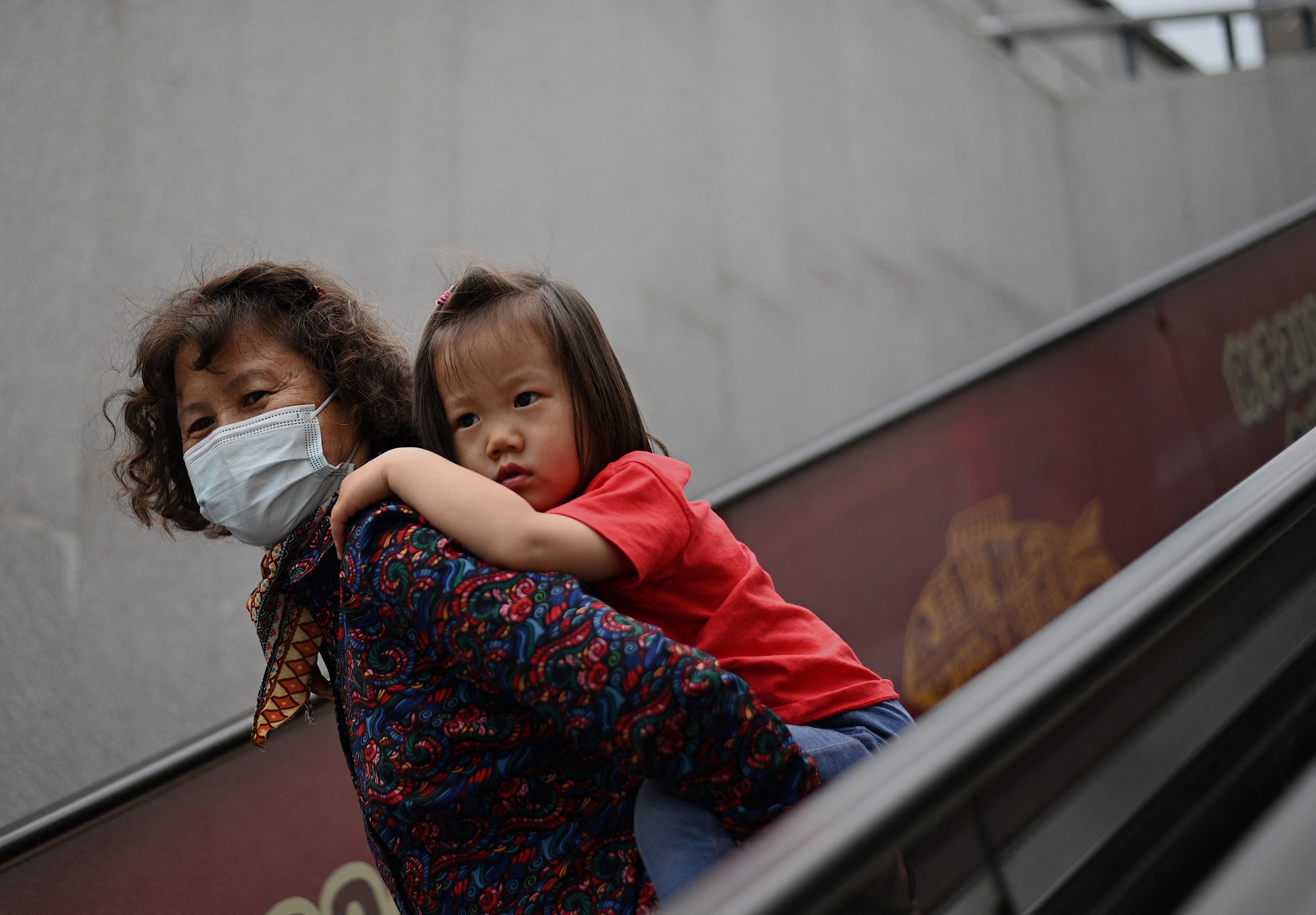Is Having Children in China the Newest Fear? Find Out Why!
In recent years, China has faced a demographic dilemma characterized by declining birth rates and an aging population. Despite the government’s efforts to encourage families to have more children, many young couples are hesitant to expand their families. China’s National Health Commission (NHC) is conducting a survey of 30,000 individuals to explore the factors shaping their views on childbearing and the “fear associated with having children.”
This initiative comes as authorities aim to reverse a declining birthrate. The survey will encompass participants from 150 counties and 1,500 communities across China, as reported by the state-affiliated Global Times, citing the China Population and Development Research Center, which operates under the NHC. Following two consecutive years of population decline in 2023, Beijing is eager to encourage young couples to consider starting families.
The survey intends to examine the “hesitations and fears related to childbearing” and ultimately propose measures to support fertility and provide incentives, according to the newspaper. The last comprehensive national survey on family and fertility was conducted in 2021. This effort coincides with the National Bureau of Statistics’ plan to execute a nationwide sample survey from October 10 to November 30 to track demographic shifts.
This fear of having children is influenced by various factors, ranging from economic pressures to social expectations. Let’s explore the reasons behind this apprehension, supported by relevant studies and references.
1. Economic Concerns
Rising Costs of Living
The financial burden of raising children in urban areas is a significant deterrent. According to a 2024 survey by China Youth Daily, approximately 75% of respondents indicated that the high costs associated with education, healthcare, and housing were primary reasons for not wanting children. In cities like Beijing and Shanghai, living expenses are particularly steep, exacerbating fears about financial stability.
Career Pressures
In a competitive job market, young professionals often prioritize their careers over starting a family. A report from the Pew Research Center highlighted that many Chinese women fear that motherhood will hinder their professional growth. This concern is especially pronounced among women, who may worry about the impact of balancing work and family responsibilities.
2. Social Expectations and Pressure
Cultural Norms
Traditionally, Chinese society places great importance on family and children. However, modern societal expectations have evolved. Research published in the journal Social Science & Medicine found that young couples feel torn between fulfilling family obligations and pursuing personal aspirations, leading to fear and anxiety about parenthood.
Parental Expectations
Many young people face pressure from their parents to have children. A 2024 study by the Chinese Academy of Social Sciences noted that 68% of young adults felt pressured by their parents to start families. This expectation can create significant stress, especially if couples feel unprepared or unwilling to take on the responsibility.
3. Work-Life Balance Challenges
Long Working Hours
China’s work culture is notorious for its long hours and high demands. A 2024 survey conducted by Deloitte found that 65% of young professionals reported difficulty maintaining a work-life balance. The fear of burnout and the inability to dedicate time to both work and family can deter many from having children.
Lack of Support Systems
Access to quality childcare and family support can be limited. A 2024 study published in the International Journal of Child Care and Education Policy indicated that inadequate childcare facilities remain a major barrier for couples considering parenthood in China (Chen, Z., & Short, S. E., 2022). Many couples fear they won’t have the necessary support to navigate the challenges of parenthood, leading to feelings of isolation.
4. Health and Well-Being Concerns
Physical and Mental Health
The pressures of modern life can take a toll on mental and physical health. Research from the China Health and Nutrition Survey in 2024 found that increased stress levels correlate with lower fertility rates among young couples. Some couples worry about the potential health risks associated with pregnancy and childbirth, as well as the challenges of parenting while managing their own well-being.
Uncertainty about the Future
With ongoing societal changes and economic uncertainties, many couples feel anxious about the future. The World Bank reported in 2024 that rising unemployment and economic instability have contributed to a declining birth rate, as many fear bringing a child into an unpredictable world.
5. Government Policies and Support
Inadequate Support for Families
While the Chinese government has implemented policies to encourage childbirth, such as financial incentives, many young couples feel these measures are insufficient. A 2024 report from the National Bureau of Statistics of China indicated that 55% of young couples believe the government’s support is inadequate to offset the costs of raising children.
Mixed Messages
Government messaging around family planning can be confusing. While the state encourages larger families, the realities of living in modern China often clash with these ideals. The disconnect between policy and personal experience leaves couples feeling uncertain about their choices.
Discover 10 Must-Try Chemistry Experiments You Can Do at Home
Final Note
The fear of having children in China is a multifaceted issue shaped by economic, social, and cultural factors. As young couples navigate the complexities of modern life, their apprehensions about parenthood are understandable. Addressing these concerns through improved support systems, clearer policies, and a shift in societal attitudes may help alleviate some of the fears surrounding family expansion. For now, many couples continue to weigh their options, balancing personal aspirations with the age-old desire to start a family.
We’ve compiled information from the published reports below; please take a look for enhanced clarity.
- Deloitte. (2024). The future of work: Insights from the Chinese workforce.
- China Youth Daily. (2024). Survey on the challenges of parenthood in urban China.
- National Bureau of Statistics of China. (2024). Population trends and family policies.
- World Bank. (2024). Economic instability and demographic changes in China.
- Chinese Academy of Social Sciences. (2024). Youth and family planning: Social pressures and expectations.





Isla Moon very informative articles or reviews at this time.
FinTech ZoomUs I truly appreciate your technique of writing a blog. I added it to my bookmark site list and will
Mountsinai I like the efforts you have put in this, regards for all the great content.